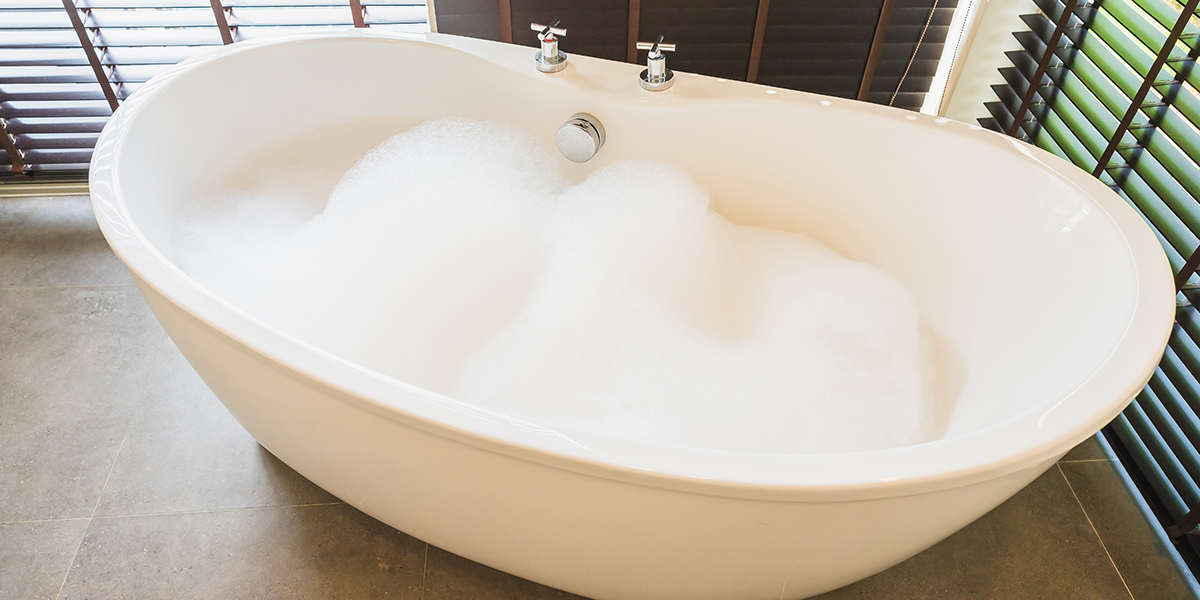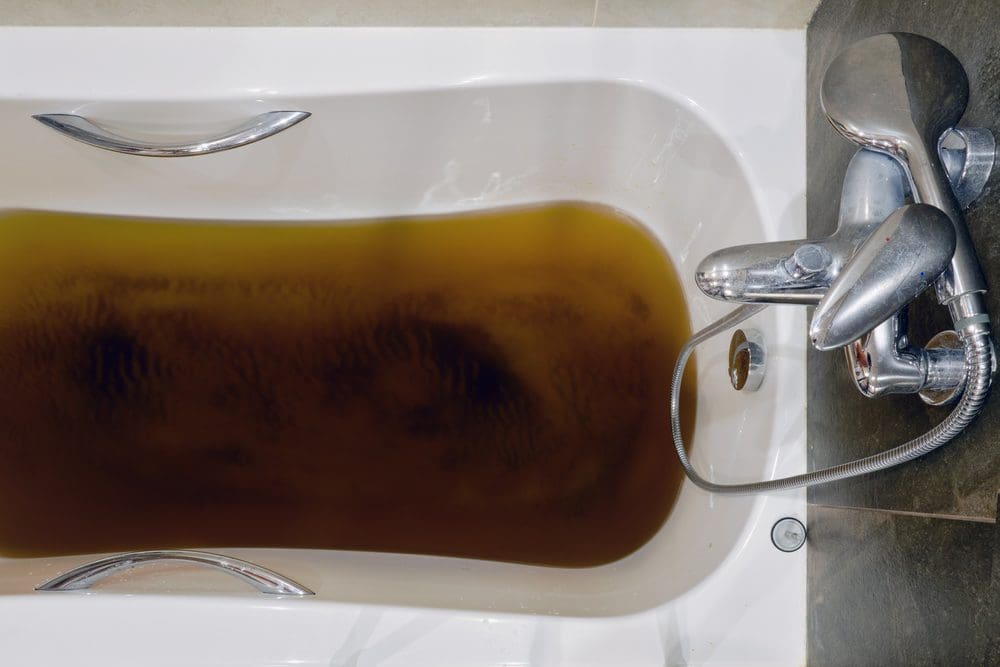An Definitive Explanation: Sewage Coming Up Through the Bathtub
An Definitive Explanation: Sewage Coming Up Through the Bathtub
Blog Article
How do you actually feel about Why is Sewage Backing Up Into My Bathtub??

Sewage back-up in the bathtub can be a distressing and unhygienic issue for any home owner. Not only is it bothersome, however it likewise poses severe health risks and indicates underlying problems with the plumbing system. Comprehending why sewage is turning up through the tub is vital for taking proper activity to address the trouble effectively.
Intro to the Concern
Common Reasons for Sewage Back-up
Blockages in the Sewer Line
Among one of the most typical sources of sewage backup is a clog in the sewer line. This can happen as a result of the accumulation of debris, oil, or international things in the pipelines, protecting against proper flow and triggering sewage to back up right into your bathtub.
Tree Origin Breach
Tree roots seeking dampness and nutrients can infiltrate sewer lines through little cracks or joints. In time, these roots can expand and increase, creating significant damage to the pipelines and causing sewer backup concerns.
Recognizing the Problem
When sewage draws back up into the bath tub, it's a clear indicator of a trouble with the drain system. The wastewater that needs to be moving away from your home is instead locating its way back into your space, which can lead to considerable damages and health hazards.
Prospective Reasons
Several elements can contribute to sewage backup in the bath tub. From clogs in the sewage system line to problems with the plumbing framework, identifying the origin is necessary for finding a service.
Aging Framework
Older homes may have dated plumbing systems that are much more susceptible to deterioration, fractures, and damage. As pipes age, they become more vulnerable to leaks and clogs, raising the possibility of sewer backup occurrences.
Heavy Rainfall or Flooding
During periods of heavy rainfall or flooding, the drain system might come to be overwhelmed with excess water, creating backups and overflows. This can lead to sewer backing up into bath tubs and other fixtures inside the home.
Indications of Sewer Back-up
Foul Odors
Undesirable smells emanating from drains or components, particularly in the washroom, might show sewage back-up issues. These smells are usually strong and relentless, signaling a problem that needs prompt attention.
Slow Draining Fixtures
Tubs, sinks, and toilets that drain slowly or otherwise in all could be experiencing sewage back-up. If multiple fixtures are impacted all at once, it's most likely that the issue originates from a typical point, such as the major sewer line.
Gurgling Noises
Unusual gurgling or bubbling sounds originating from drains pipes when water is running somewhere else in the house are a measure of air caught in the plumbing system. This air accumulation can result from sewer back-up and must be investigated without delay.
Health And Wellness Dangers Related To Sewage Backup
Contamination of Water Supply
Sewer backup can contaminate the supply of water in your home, posturing a serious health and wellness threat to you and your household. Direct exposure to infected water can lead to stomach concerns, skin infections, and various other ailments.
Mold and mildew Growth
Wetness from sewer backup can create suitable conditions for mold development in your home. Mold and mildew spores can aggravate respiratory troubles and trigger allergies in sensitive individuals, making prompt cleanup important.
Spread of Disease
Sewage contains hazardous germs, infections, and bloodsuckers that can cause a range of illness, consisting of hepatitis, cholera, and gastroenteritis. Entering into contact with sewage or contaminated surface areas puts you in jeopardy of infection.
Cleaning Up After Sewer Back-up
Disinfection Procedures
Extensively disinfect and sterilize influenced areas after sewage back-up to remove damaging microorganisms and prevent mold growth. Use suitable cleaning items and protective equipment to make certain safe and effective clean-up.
Reconstruction of Influenced Locations
Repair any damage to floor covering, walls, or components triggered by sewer back-up. Depending on the level of the damage, you may require to change carpeting, drywall, or various other materials to restore your home to its pre-loss problem.
Immediate Actions to Take
Shutting Off Water Supply
In the event of sewer back-up, it's essential to switch off the water supply to avoid further contamination and damage. Find the major water shutoff valve in your house and shut it off until the concern can be dealt with.
Getting In Touch With a Specialist Plumber
Managing sewage back-up is not a do it yourself job. Call a certified plumber with experience in taking care of sewage-related issues to examine the scenario and do essential fixings or cleanups.
Avoiding Contact with Polluted Water
Until the sewage backup is settled, avoid contact with contaminated water to prevent the spread of bacteria and virus. Use protective equipment if you have to remain in the damaged location and clean your hands thoroughly afterward.
Safety nets
Routine Maintenance of Drain Lines
Arrange routine examinations and upkeep of your sewage system lines to determine and deal with possible problems before they intensify into major issues. This can include cleaning debris, inspecting for tree root breach, and fixing any type of damaged pipes.
Setting Up Backwater Shutoffs
Think about mounting backwater shutoffs in your plumbing system to stop sewer from receding into your home during durations of heavy rainfall or flooding. These shutoffs immediately close when water starts backing up, shielding your residential or commercial property from contamination.
Proper Disposal of Family Waste
Prevent flushing anything aside from toilet paper and human waste down the commode to stop clogs and obstructions in the sewage system line. Dispose of grease, oil, and other home chemicals properly to lessen the risk of plumbing issues.
Why Is Water Backing Up in My Bathtub When I Flush My Toilet?
What to do about a sewer line clog
First, don’t bother with plunging. No amount of plunging will dislodge the clog in a sewer line. The clog is too far away. Plungers are for clogs in the toilet itself, not the sewer line. Plus, the most likely causes of a sewer clog are:
Tree roots Flushed toys or feminine products Grease buildup Those items don’t move easily. And in the case of tree roots, the roots need to be cut out of the pipe and the pipe will need to be repaired.
You’ll need a closet auger. A closet auger is a type of plumber’s snake with a protective cover to keep from scratching the delicate porcelain toilet. If the clog is further down, you may need to remove the toilet or use one of your cleanouts to get to the clog.
We also recommend doing a video inspection of the drain to ensure that the cause of the clog has been completely removed. Otherwise, you could have the same problem again in a few days or weeks.
https://mspplumbingheatingair.com/blog/why-is-water-backing-up-in-my-bathtub-when-i-flush-my-toilet

I stumbled upon that blog post on Why sewage is coming up through your bathtub while doing a lookup on the search engines. Are you aware of someone else who is excited about the topic? Do not hesitate to share it. Thanks so much for your time invested reading it.
Call Today
Report this page